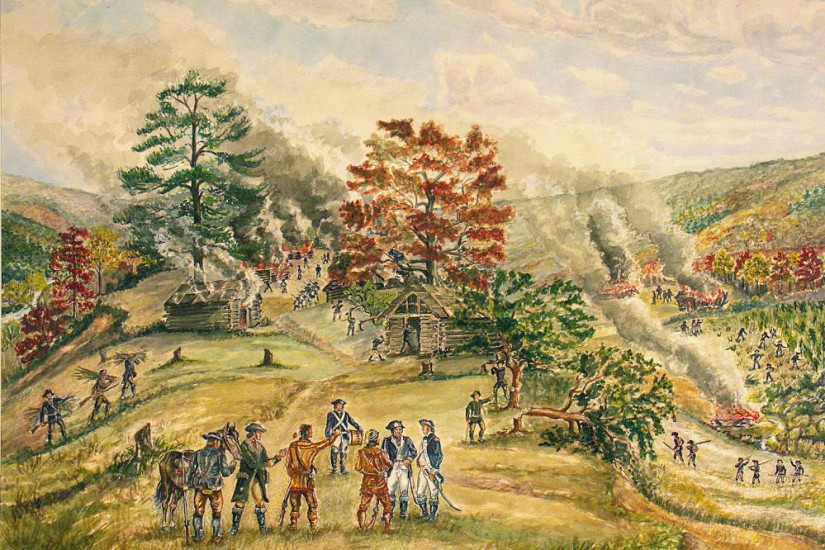Since the publication of Bernard Bailyn’s introduction to Pamphlets of the American Revolution in 1965, we have known that colonists expressed fears of a British conspiracy to enslave them. Yet we have paid little attention to Native American fears that colonists intended to annihilate them. How widespread were these fears? As I was researching my recent book, Surviving Genocide, I found several examples of what I call “an Indigenous consciousness of genocide.” In March 1776, for example, a Cherokee leader named Dragging Canoe told a British agent that his nation “had but a small spot of ground left to stand upon” and that the colonists’ unrelenting demands for land proved that it was their “Intention…to destroy [the Cherokees] from being a people.” Three years later, as the Continental Army was about to invade Iroquoia, the homeland of the Six Nations (Haudenosaunees), Mohawk leader Joseph Brant wrote of his “determination to fight the Bostonians,” another designation for rapacious colonists, observing that “it is their intention to exterminate the people of the Longhouse.”
I also discovered that U.S. officials were well aware that Native people were making allegations like those of Dragging Canoe and Joseph Brant. Evidence of their knowledge was sitting in plain sight in the first written treaty between the United States and an Indian nation—the 1778 Fort Pitt Treaty with the Delaware Nation. Article 6 of the treaty addresses the charge that “it is the design of the [United] States…to extirpate the Indians and take possession of their country.” The text, which U.S. commissioners wrote, attributes this allegation to the “enemies of the United States” (i.e., the British), who “have endeavored by every artifice in their power” to convince the Indians of this “false suggestion,” as if Native people wouldn’t have arrived at this conclusion on their own. To convince the Delawares of U.S. benevolence, the treaty promises to guarantee Delaware rights to their lands and offers to consider creating a fourteenth state for Indians. Historians have long been fascinated with the idea of an Indian state (an idea which politicians and reformers occasionally proposed into the early twentieth century) without noticing that U.S. leaders first raised the possibility to counter allegations of genocide.
